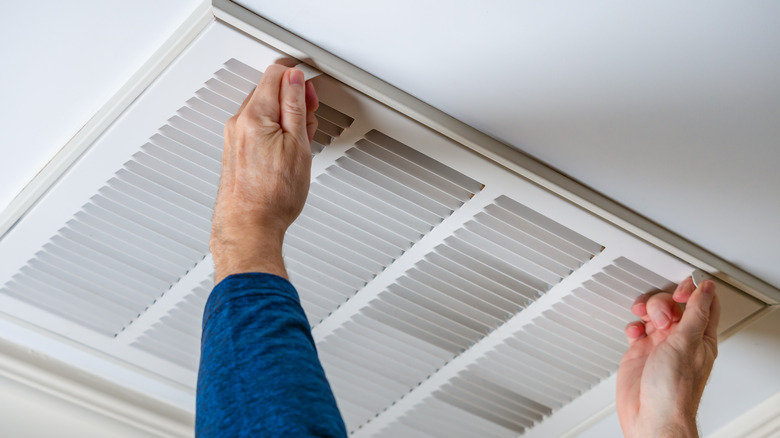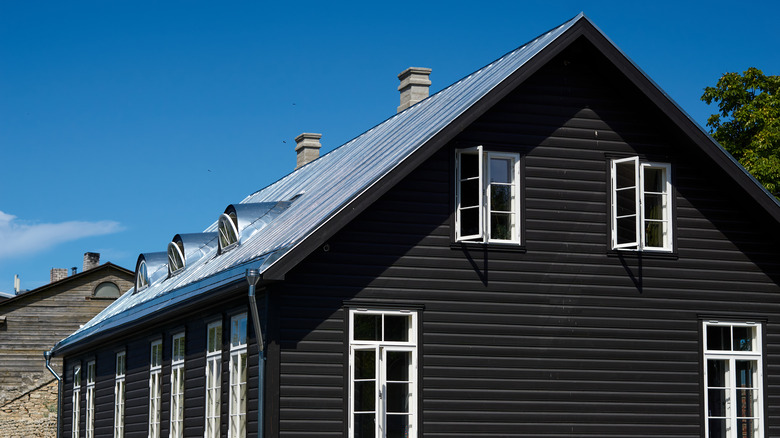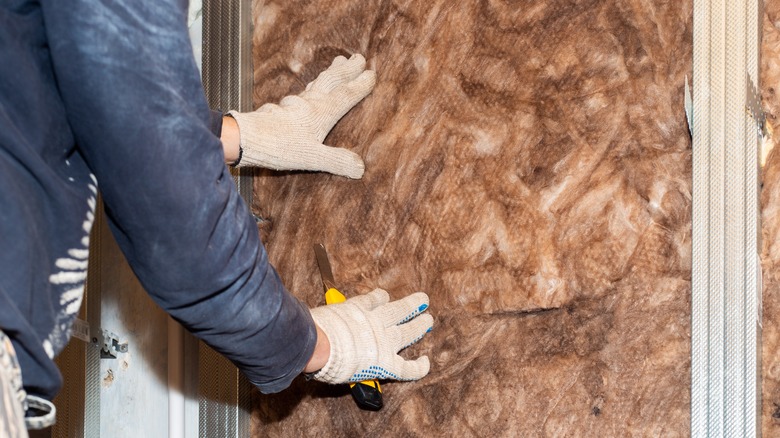The 5 Most Important Questions You Should Ask Your Home Inspector
Home inspectors investigate the condition of a home that's on the market and in preparations to sell. As a buyer, it's crucial to work with a home inspector that has a wealth of experience and knowledge in the profession and your local marketplace.
Home Inspector Secrets notes that some home inspectors might be talkative and forthcoming with the information contained within the report and beyond its scope. Others will be quieter and require you to ask directed questions to find the specific answers you're looking for about the home. It's always a good idea to talk with the inspector (in addition to reading their report) in order to gain detailed insights about the condition of the property. Having a conversation puts context to the notes listed in the inspection report, and can help you make smarter decisions about your offer or listing price, the home's renovation projects, and more.
Investopedia reports that home inspectors aren't just looking at windows and walls, but instead dig deep into the heating and cooling systems. They look into plumbing and electrical hookups and investigate the roof, structural damage, issues with sewage and fire, and pest problems that may exist on the property.
By talking to the home inspector and focusing on these features, you can gain a clear image of the quality fixtures and potential issues that will come along with the property. For an owner trying to sell the home, this acts as a blueprint for high-impact fixes.
Ask about maintenance suggestions
Home inspectors are human too and, as a result, they often make great conversational companions. Talking with a home inspector about questions you have regarding maintenance in certain areas of the home can open up other avenues to gain valuable information about the inspection process and where the home may require some attention.
It's never a bad idea to ask about things you don't fully understand, and a home inspector is a great resource for anyone in the process of listing their property. Home inspectors walk through countless homes each year and know a great deal about repair works, modernizations, and general maintenance when it comes to the home.
Home Inspector Secrets reports that you should always try to schedule a home inspection when you can walk around the property with the inspector. This gives you ample time to ask any questions that might arise organically about the house and its various fixtures, services, and amenities. Asking questions about maintenance can help you become a more knowledgeable homeowner on a broader level and give you the ability to engage with this crucial professional.
Focus on structural issues
Asking an inspector about structural problems is an obvious point of focus for anyone working with this type of professional. Home Inspection Insider reports that you should always ask if problems are cosmetic or structural when they arise. Cracks or water spots, for instance, can signal minor troubles or typical settling in a home, or they can be signs of a far greater problem that awaits the next owner of the home.
Home inspectors are primarily on the lookout for structural problems with a home, and so while walking around the property, if you see them looking at something and taking notes, it's a good idea to question the feature. A note may be nothing more than a simple identification of a minor defect or cosmetic issue, but it could also provide you with crucial information about the health of the home. Combining the inspection report with a firsthand conversation about the features that you are looking at in real-time can be a powerful toolset for those in the market for new properties.
Query the inspector about the roof
Asking about the roof should always be a part of your questions for a home inspector, whether you're investigating the home as a buyer or working to appraise it as a seller.
Realtor.com notes that the roof and other systems in the home (such as the HVAC infrastructure, windows, and plumbing) will always show some wear. But this can either be a minor concern; for instance, in the event of typical use over the course of a few years, or something more substantial. Many homes will have minor notes about these systems, and the roof is certainly a segment of the home that sees significant weathering over time. Inspecting the roof will often yield a few cursory notes about its suitability or a recommendation to have the installation replaced in the near future. Unless the roof has just been replaced (and even then the inspection should always cover this feature), it's essential to speak with the inspector about the condition of the roof and any concerns they may have about the fitting.
Ask if the home looks like a flipper property
For buyers, being a little forward can help you cut right to the heart of the issue — just make sure you aren't pressing the inspector on too many different avenues. Asking whether they think the home is a fix and flip property can help you make sense of the quality of the renovation work that exists inside the space.
Home inspectors can often tell when a property has seen some fast and potentially subpar renovations done to it, according to Home Inspector Secrets. These may not make it onto the home inspection report because the quality meets code standards or provides adequate support to the home more generally, yet knowledge of where a home may have seen rushed renovations designed specifically to boost resale value for the flipper can help a potential buyer make a smarter decision for their finances, family, and future.
Similarly, Home Inspector Secrets reports that after discovering that a home appears to fit this mold, it's a good idea to scour the local authority's records for building or other relevant permits to ensure that the changes done to the home were signed off on and performed up to code.
Take note of the insulation quality
One feature of a home that buyers often overlook is the quality of the insulation within the walls and ceiling. WINI notes that home inspectors focus on insulation volume and quality in their reports, but it's up to those reading these notes to make sense of the findings. Asking your inspector about their thoughts on the insulation can give you a more in-depth understanding of this crucial feature that all too often flies far under the radar.
Poor insulation can be overcome by a modern and powerful air conditioning system; however, this comes with a major drawback. To defeat the problems inherent to a poorly insulated home, you'll need to overuse your HVAC system, leading to a faster wear down of the parts and inflated cooling and heating costs throughout the year. Insulation is something that can make a massive difference in a variety of lifestyle aspects in any home. Forgetting to take note of the insulation quality in a property can set you back. Your inspector will likely be happy to speak on the insulation quality, especially considering the lack of attention that the feature often gleans from interested buyers.





